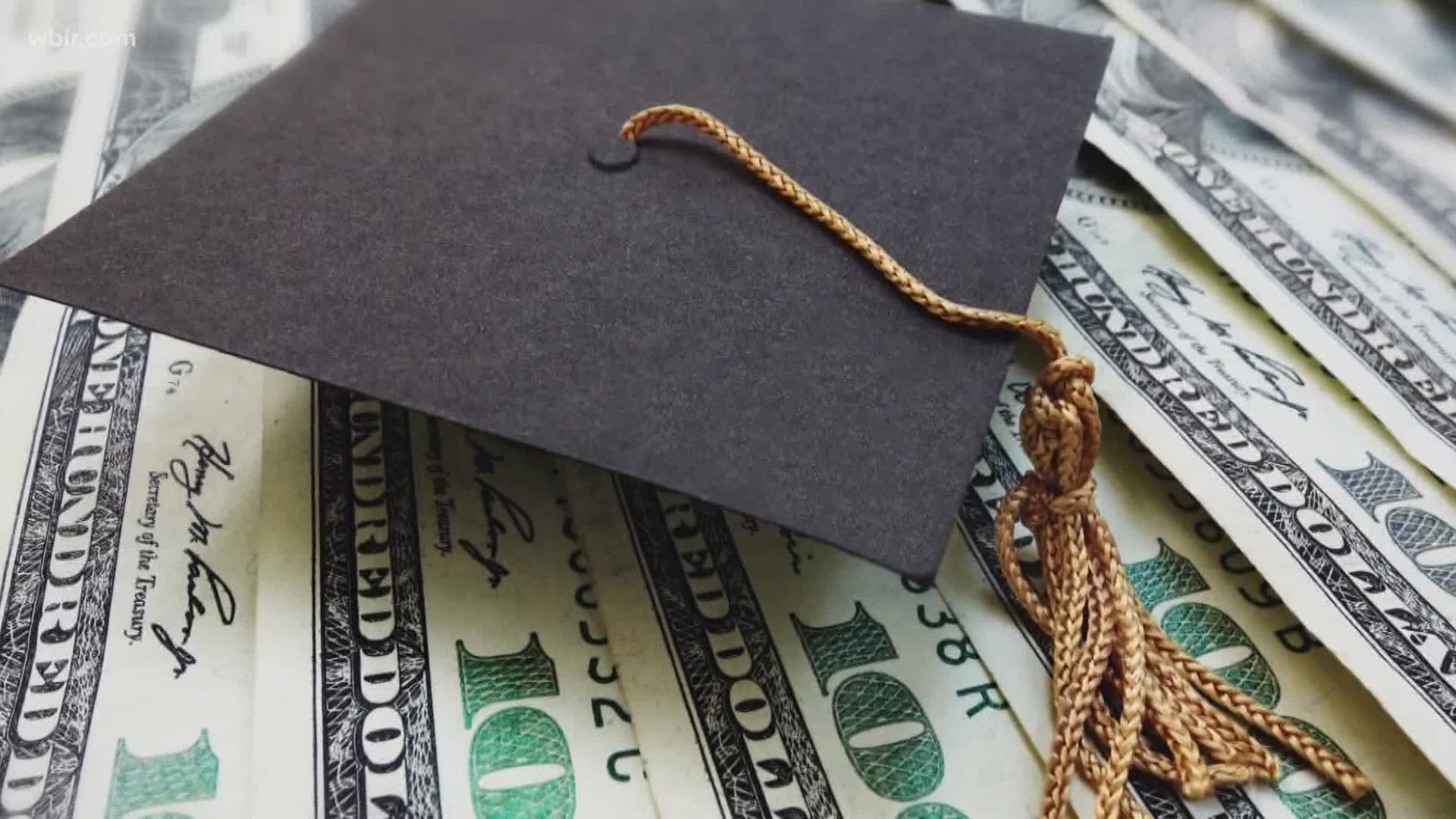KNOXVILLE, Tenn. — As grad season comes to a close, new graduates will be settling into their new lives. That can include getting ready for a new job, moving to a new city or simply just taking a break.
For many graduates, the new transition will also include figuring out how to pay off all those student loans.
If that's something that's been on your mind, you're not alone.
According to a report by Student Loan Hero, Tennessee borrowers owe a cumulative $30.1 billion in federal and private student loans, which is the 13th highest in the nation.
Student loan experts said that's largely due to the Volunteer State's debt to income ratio, which is the 16th highest in the U.S.
"What that number shows us is that the average citizen within the state of Tennessee doesn't have enough cash to account for their amount of debt," said Andrew Pentis, a certified student loan counselor for Student Loan Hero. "It can also be credit card debt, personal loan debt or even auto loan debt."
Right now, under President Biden's American Rescue Plan, student borrowers are not required to make monthly payments through September 30. It's important to remember that while most federal loan borrowers can avoid paying and not face any penalties, this doesn't apply to all borrowers.
"It does not apply to federal loan borrowers who have older loans under the Federal Family Education Loan program or a Perkins loan lent directly by their school," Pentis said. "It also doesn't apply to private student loans that were lent by banks or credit unions."
So what could come next?
Pentis said the most likely proposal that would pass is $10,000 in forgiveness for federal loan borrowers. According to Student Loan Hero, that would mean 31% of Tennessee borrowers could have their debt completely eliminated.
"That's a lot of folks who could suddenly see that monthly payment disappear and be able to focus on their higher priority goals," Pentis said.
If it goes through, borrowers would also be eligible for tax-free loan forgiveness through 2025.
"Previously, many loan forgiveness programs required borrowers to pay a tax on forgiven amounts, so this is great news if forgiveness goes down the pipe. They won't have to worry about a chunk of it going back to the government," Pentis said.
So what can student loan borrowers do now?
Pentis said it depends on your loan type. If you're a private student loan borrower, the relief proposals won't necessarily apply to you. Because of this, you should make sure you're in constant contact with your private lender or loan servicer to make sure you're benefiting from whatever options are available.
For those who are eligible for extra assistance, Pentis said it's perfectly fine to be optimistic and hope for additional relief, but you shouldn't center your repayment strategy on it because nothing is set in stone.
Here's what you can do:
- Reach out to your federal loan forgiveness servicer to understand your options.
- Confirm your eligibility for the ongoing repayment suspension that's set to last through September. Make sure you understand what it means for you and your loans.
- Make voluntary payments to cut down your debt faster.
- Consider recertifying your income and switching to an income driven repayment plan that would keep your monthly payments low.
- Look into student loan refinancing once the suspension ends to lower your interest rate and save money every month.
Even if loan forgiveness doesn't go through, Pentis said Tennessee has existing state forgiveness programs that could help.
"Generally they cater more toward health care practitioners such as primary care providers, nurses, teachers and public servants, but if you fall into one of those careers, check into those other options as you're sort of navigating toward the best payment," Pentis said.
If you want to check your eligibility for assistance, you can log into your Federal Student Aid account here. You can check what type of loans you have. If you still have questions, you can call your federal loan servicer.

